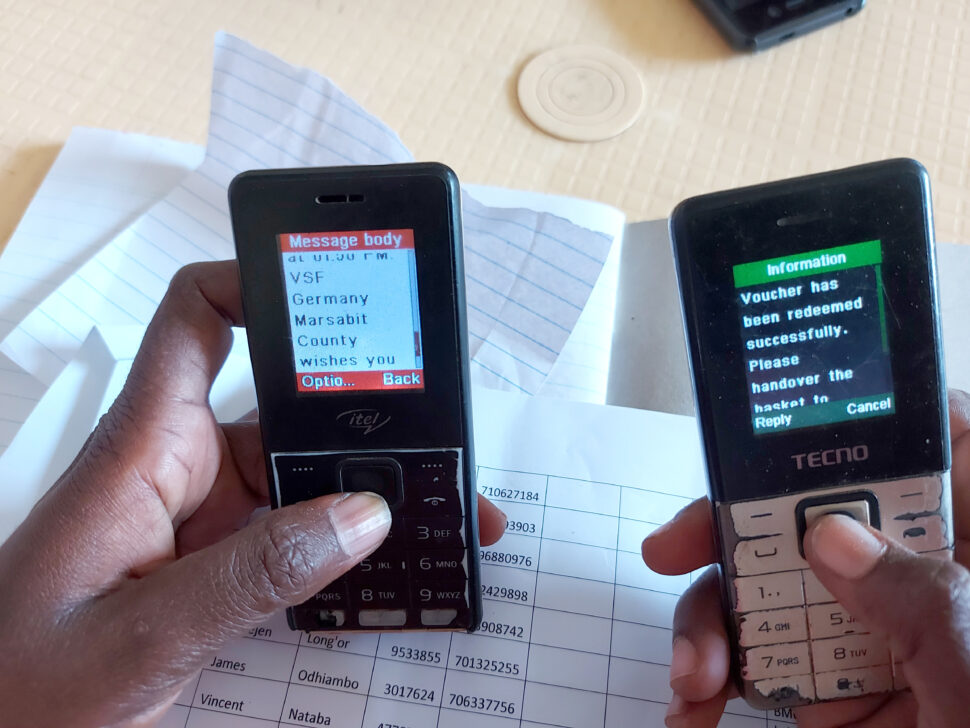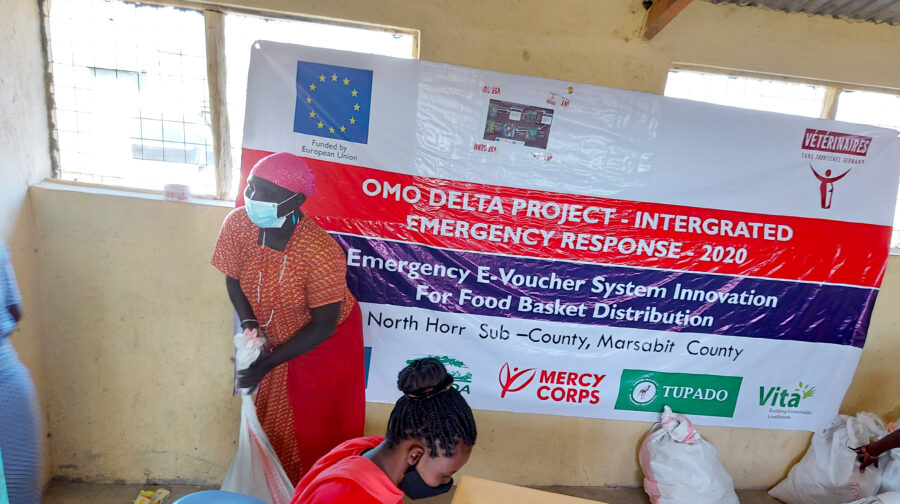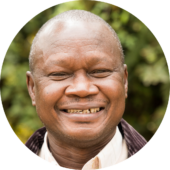Expanding Rangeland to Achieve Growth & Transformation
This project addresses root causes of irregular migration and displaced persons and is a cross-border project covering Kenya and Ethiopia (southwest Ethiopia/northwest Kenya, specifically Marsabit and Turkana counties).

The Omo Delta Project (ODP) is funded by the EU Emergency Trust Fund for Stability and Addressing the Root Causes of Irregular Migration and Displaced Persons in Africa with € 12,631,578 for the period between January 2018 and April 2021. It addresses root causes of irregular migration and displaced persons and is a cross-border project covering Kenya and Ethiopia (southwest Ethiopia/northwest Kenya, specifically Marsabit and Turkana counties). The project is implemented by a VSF Germany-led consortium of six partners, including Mercy Corps-Kenya, VITA, EPaRDA, CIFA, and TUPADO. The overall objective of the project is to promote economic and private sector development and greater resilience among youth, women and displaced people and targets 18,575 beneficiary HHs.
In 2020, the project experienced a combination of hazards such as COVID-19, cholera, the desert locust invasion, insecurity, floods and drought that affected the implementation process and increased vulnerabilities of targeted beneficiaries to the hazards and shocks. In response, the ODP Crisis Modifier budget facility was activated. The funding could, hence, be channeled where it was most needed in face of the multitude of challenges. VSF Germany and partners then implemented an innovative technology driven integrated emergency response to reduce the risk of exposure, mitigate against the severity of the effects and cushion communities against effects of multi-hazards on their livelihoods in the project areas. The objective of the integrated emergency response was to strengthen coping capacity and resilience against negative effects of multi-phased crisis. Intervention measures entailed facilitating access to emergency food access, COVID-19 infection prevention and control measures through the distribution of hygiene kits and personal protective equipment (PEP), improved financial security and to safeguard small scale business from risk of collapse from COVID-19 impact through cash injection.
The e-Voucher System
The intervention modality was designed as a unconditional cash transfer using e-voucher, e-cash and e-trade digital systems to facilitate food access and conditional cash transfer to beneficiaries and payments to vendors supplying various food stuffs and other project supplies. This was done in partnership with Myfugo, a technology firm based in Kenya. Target groups were HHs hosting malnourished children <5 years, the elderly, chronically ill persons, women headed HHs, pregnant and breast-feeding mothers and the youth. The beneficiaries were selected from the ongoing Omo Delta Project beneficiary groups e.g IGA/Business groups, Beach Management Units (BMUs) and fish cooperatives, vendors, small stock traders, casual workers, unemployed, pastoralist, Village Savings and Loaning Association members, Natural Resources management Committee members, Environmental Management Committee members, Community Disease Reporters (CDRs), livestock cross-breeders and agro-pastoralists groups. The electronic system enabled easy generation and issuance of digital coupons, e-vouchers or direct cash transfers to beneficiaries. The system allowed the disbursement of food baskets to targeted vulnerable groups by pre-loading beneficiary data (either business groups or individual members) who would receive a specially generated identity code and message of where they can pick their food baskets at the assigned time. The system had enhanced security features that prevented anyone from claiming food basket if she/he has not received a message (with code) on their phones. Only identified beneficiaries whose details were logged into the system prior to disbursement could make claims, thus reducing cases of fraud. The system was done on pilot basis with the support of a system developer and worked so successfully and transparently to the excitement of the donor that has endorsed it for future projects that they would fund under VSF Germany patent.
A more secure Shop
Arupe Dabalen, aged 32, has a family of seven and takes care of five other family members. She is a member of the Naretoi Self Help Group. Arupe’s husband does not work but they have children and other relatives to take care of. In 2018, she sold three goats to raise KES 6,000 and started a small business with one bag of 25kg of sugar, one bag of rice and one bag of beans. She operates from a traditional structure. She made a profit of KES 2,000 after selling all the rice, sugar and beans. After receiving a training in the context of VSF Germany’s project, Arupe took a loan which she was afraid of taking initially and expanded her business that was on the verge of collapse because of little profit and strain from household needs. Arupe thus states:
“My business was collapsing because of household needs and I took a loan of KES 20,000 from the VSF Germany supported group which I used to increase my stock and started building a better and more secure shop. My profit increased to KES 5,000. I used KES 1,000 for household needs and KES 4,000 for loan repayment and gradually increased my stock. I managed to repay the loan and took another one of KES 10,000. I am now making a profit between KES 5, 000 and KES 12, 000 per month and am now able to pay the school fees for our children and buy household basics. All thanks to being in the group and the training given to us by VSF Germany.”

Contact/Country Director
With two decades of experience in programme development and the implementation of humanitarian and development interventions Maurice Kiboye is a true expert in the intervention fields of food security, livelihoods and the holistic One Health approach.
Maurice Kiboye has been part of the team since 2013.
“I draw my motivation from successful project acquisitions, project implementations and the positive feedback from beneficiaries & partners.“
